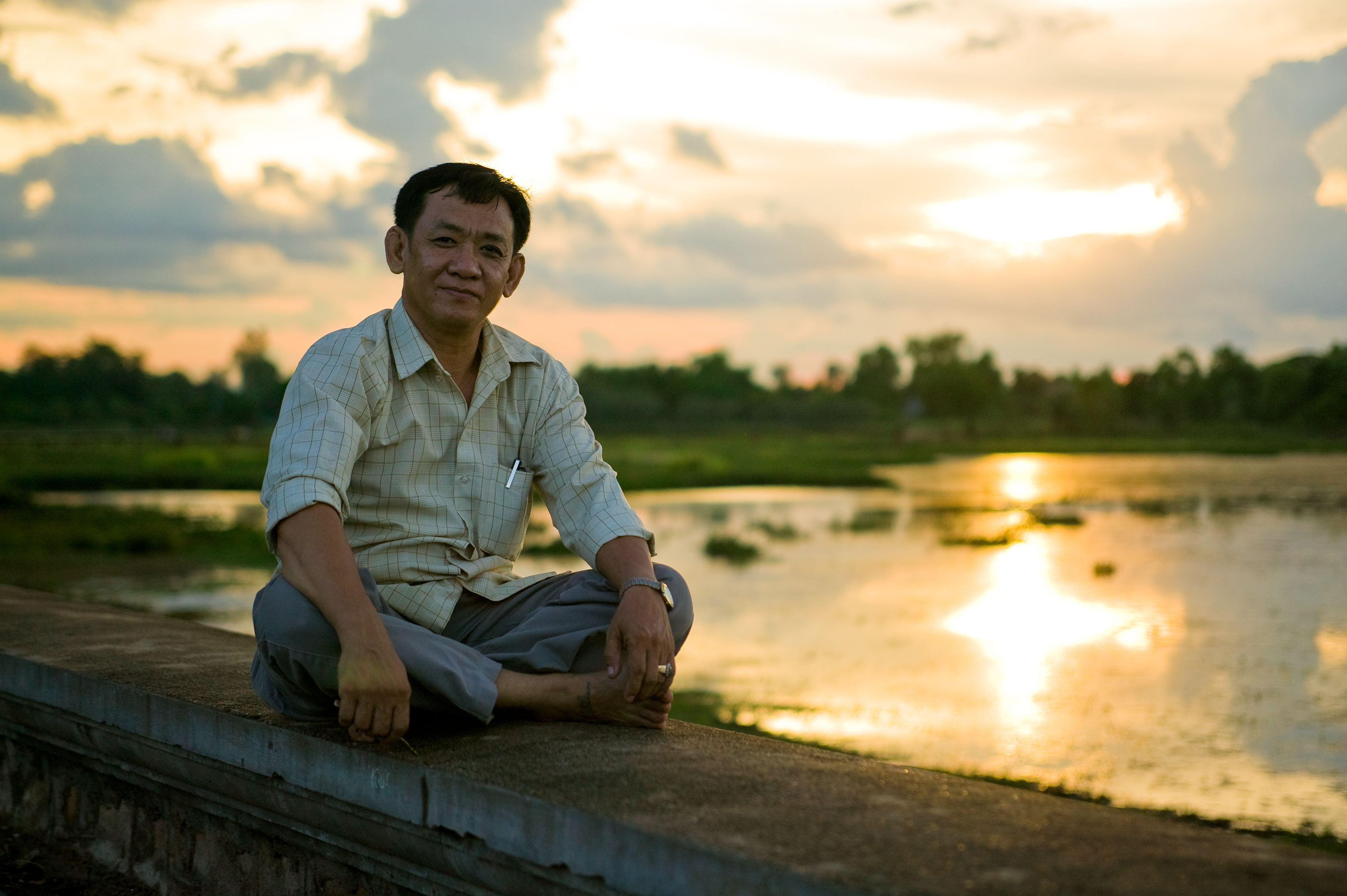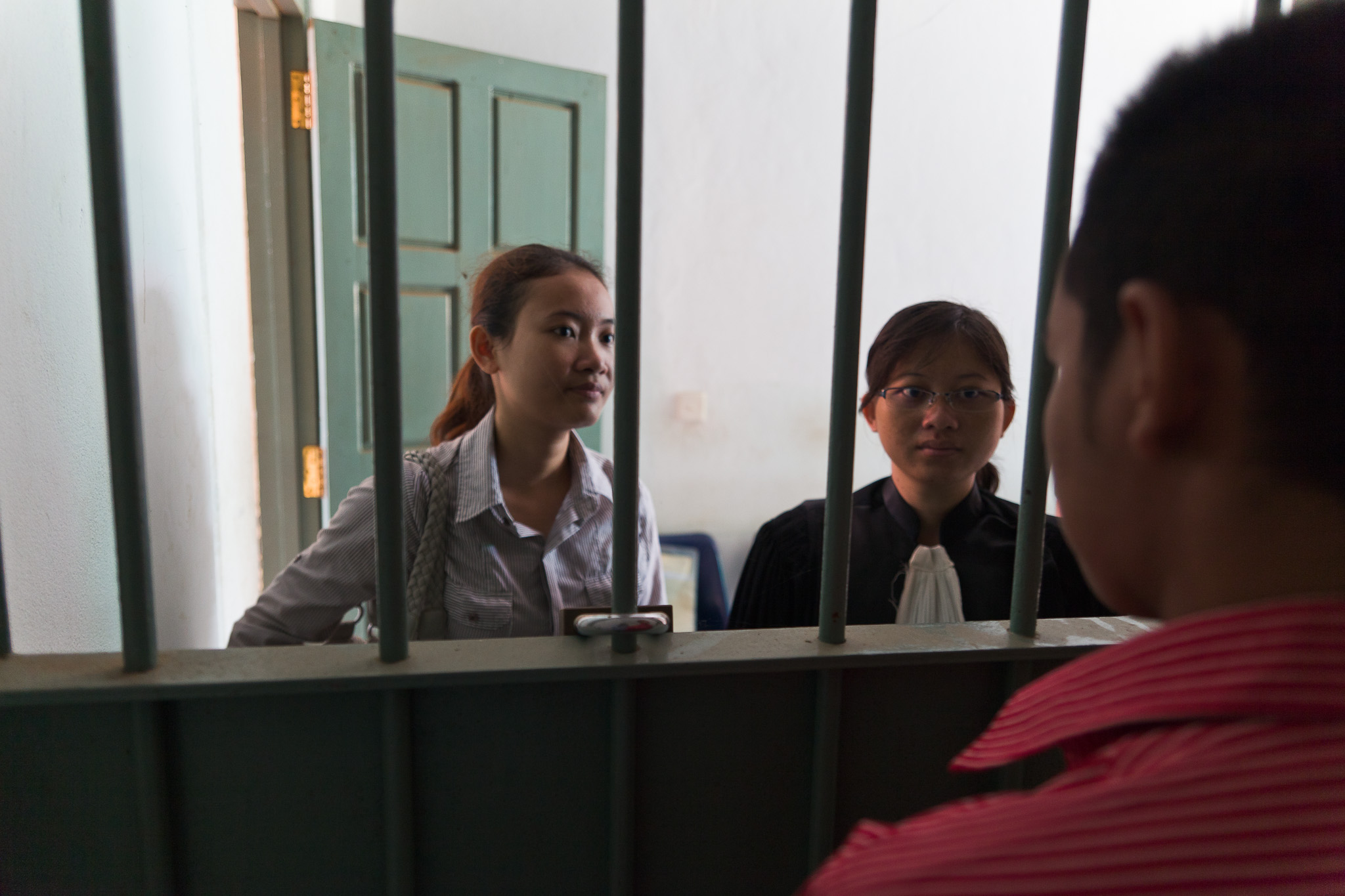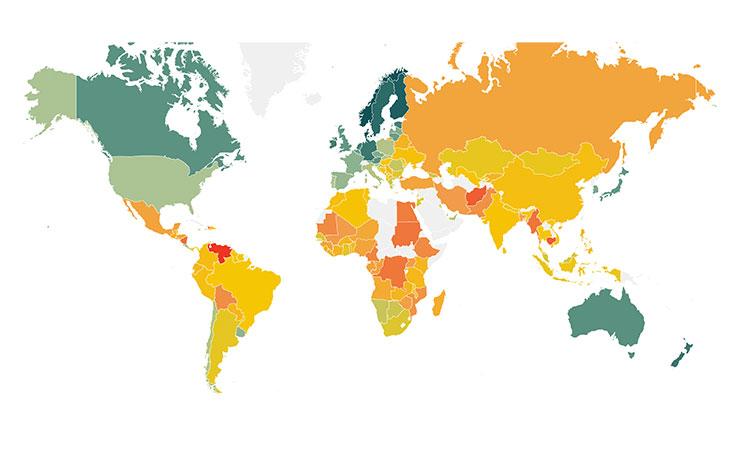

Guest column by Ouk Vandeth, country director for 2022 World Justice Challenge winner Cambodia Bridges to Justice
As one of Cambodia’s first human rights defenders, Vandeth recently made the difficult decision to stay home when the World Justice Project invited 30 World Justice Challenge finalists to showcase their exemplary rule of law projects at the World Justice Forum in The Hague.
Below he explains why – and what being named a 2022 Challenge winner means for his work.
Winning the World Justice Challenge access to justice prize is such a big moment for my country. To be recognised at a global level has filled me with so many emotions. We have never been recognized for our work and it is important for my team to know that what they do matters. It is important for them to know that the world is listening to our stories and recognizes our fight for justice. This award recognizes their work and the work of all the defenders helping my country to rebuild the rule of law.

Between 1975 and 1979, we lived under the Khmer Rouge regime. Our legal and education systems were destroyed. People died of starvation and families were torn apart. They taught us that it is better to kill ten innocent men, than let one guilty person be free. Many people suffered and we are still recovering.
When the UN came to Cambodia in 1991, it was the first time I was told about human rights. At the time I was working as a policeman. We did not understand about human rights, and we did not have laws guiding our work. We followed the instructions of our commanders. There was no money to gather evidence and we were told to just get a confession. It is a troubling period for me.
As my country started to rebuild the rule of law, I wanted to be part of the solution, not part of the problem. So in 1995, I trained to become one of the country’s first defenders. I have now spent the past three decades working to improve access to justice for the poor.
My country has come a long way and I am proud to be at the forefront of driving that change. We were the first legal aid lawyers to work permanently outside of Phnom Penh, the capital, decentralizing access to justice. My team were the first legal aid lawyers helping Cambodia’s Indigenous population, fighting against the discrimination they often face when coming in conflict with the law. As a result of my team of defenders working throughout the country, we have a criminal justice system that recognizes the role of a defender in a criminal trial. We have helped bring the presumption of innocence into the courtrooms. But there is much more that needs to be done.
We won this year’s World Justice Challenge access to justice prize for our work in the Court of Appeals. It is very important work and without the help of our lawyers, people can remain in prison indefinitely waiting for their appeal case to be heard. Justice is a little clearer in the appeals courts and we have reduced the longest serving cases on appeal. One man we helped had spent 18 years on appeal. He was tried without a lawyer. On appeal we were able to show that he was convicted with no evidence and that this is not justice. We fought for his release. We believe that no innocent person should be left in prison for decades to wait for an appeal. This is something we are working to change at a national level.
It was a difficult decision for me not to attend the World Justice Forum in The Hague as one of 30 Challenge finalists invited to showcase our work. I carry a big weight in my work, and I know that if I leave, my trials will be delayed, or people will be tried without a lawyer. My trials can be delayed up to a year and this is not something that I can live with. It fills me with hope that criminal justice has been recognized as critical to the foundations of the rule of law. We struggle to get people to understand that the right to a fair trial is fundamental to the rule of law and democracy. To leave criminal justice behind is to stall progress. The rule of law is bigger than me as a lawyer, it is bigger than all of us. It is the cornerstone of society and something that is so fragile. We must work hard to protect it. Because I know from my own experience, it is a slow process to rebuild it once it is taken away.
Watch Cambodia Bridges to Justice’s Kate Flower accept the World Justice Challenge Access to Justice Prize on behalf of Ouk Vandeth at the World Justice Forum’s closing plenary on June 2, 2022:
Ouk Vandeth is the country director of Cambodia Bridges to Justice. To learn more about his work in Cambodia you can follow Cambodia Bridges to Justice’s stories on Facebook, or if you would like to get involved you can reach out to Kate Flower, [email protected].






